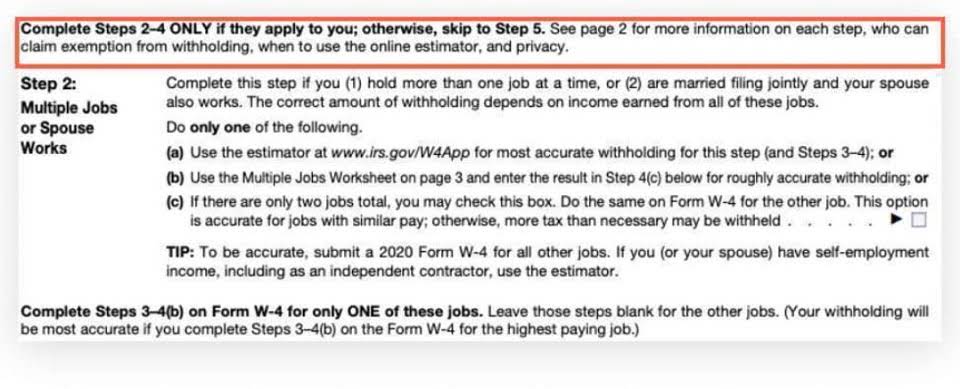Accordingly, the assets of the business are shown at cost in the balance sheet. Thus the balance sheet prepared on the basis of historical cost ignores the price-level changes (inflation). In this way, the balance sheet of the business does not present the true and fair picture of the business.
- There are 672,,587 certified public accountants in the U.S., according to the National Association of State Boards of Accountancy.
- Refunds are often the result of miscalculated quarterly estimated tax payments.
- Accounting success relies on generally accepted accounting principles (GAAP), up-to-date statements, and the accounting cycle.
- These transactions are maintained by accounting teams under different financial statements like balance sheets, cash flow statements, income statements, and shareholder’s equity statements.
Accounting involves interconnected “phases”
Anyone with the right skills, training, or education can take on the job. That said, most employers prefer candidates with a degree in business, accounting, or economics. Hiring an accountant to manage bills and expenses will improve your bottom line. An accountant can organize what you owe, ensure fast payments, and track expenses before they grow out of hand. Instead of tying expenses to a product or service you offered, tie them into their return on investment. This principle highlights profitability over the rate of production.
You need accounting to attract investors or sell your business

A balance sheet reports a company’s financial position as of a specific date. It lists the company’s assets, liabilities, and equity, and the financial statement rolls over from one period to the next. Financial accounting guidance dictates how a company records cash, values assets, and reports debt. Revenues and expenses are accounted for and reported on the income statement, resulting in the determination of net income at the bottom of the statement. Assets, liabilities, and equity accounts are reported on the balance sheet, which utilizes financial accounting to report ownership of the company’s future economic benefits.
What are the different types of accounting?
- Importantly, it also covers relevant etymologies and word histories in cases where knowledge of these elements can help you better understand the term.
- 11 Financial is a registered investment adviser located in Lufkin, Texas.
- As mentioned earlier, accounting information is used by different stakeholders, especially the management, to decide the future course of action for the organisation.
- A balance sheet is used by management, lenders, and investors to assess the liquidity and solvency of a company.
- Even though the charges relate to services incurred in July, the cash method of financial accounting requires expenses to be recorded when they are paid, not when they occur.
- By studying the definition alone, we learned some important concepts in accounting.
To illustrate double-entry accounting, imagine a business sending an invoice to one of its clients. An accountant using the double-entry method records a debit to accounts receivables, which flows through to the balance sheet, and a credit to sales revenue, which flows through to the income statement. The detailed process of recording, analyzing, and summarizing the financial transactions of an organization for an accounting period is financial accounting.
- Our mission is to equip business owners with the knowledge and confidence to make informed decisions.
- This helps organizations access all financial records from a centralized platform.
- After the Great Depression and the formation of the Securities and Exchange Commission (SEC), all publicly traded companies were required to issue reports written by accredited accountants.
- With this software handling rote work, accountants can focus on their most important tasks.
- Accountants use “initial inventory plus purchases, minus ending inventory” as a basic accounting formula for calculating COGS over a specific accounting period.
- Financial accounting facilitates a systematic process for recording financial transactions in the accounting books.
Functions of Accounting
Companies engage in financial accounting for a number of important reasons. Accounting is also considered a science because it is a body of knowledge. However, accounting is not an exact science since the rules and principles are constantly changing (improved by standard-setting bodies). Our writing and editorial staff are a team of experts holding advanced financial designations and have written for most major financial media publications. Our work has been directly cited by organizations including Entrepreneur, Business Insider, Investopedia, Forbes, CNBC, and many others.

They are the ones tracking, analyzing, and auditing the company’s income and expenditures. They also have a key role in planning, decision-making, and forecasting, based on their ability to accurately estimate the cost of future projects. Certified public accountants are legally and ethically responsible to be honest and trustworthy, and to avoid negligence in their duties. CPAs have real influence over their clients, which means their judgment and work can affect not just an individual but an entire company—including its employees, its board, and its investors.
Nonprofit entities and government agencies use similar financial statements; however, their financial statements are more specific to their entity types and will vary from the statements listed above. Financial accounting guidance dictates when transactions are to be recorded, though there is often little to no flexibility in the amount of cash to be reported per transaction. International public companies definition of accountancy also frequently report financial statements in accordance with International Financial Reporting Standards (IFRS). Work opportunities for a financial accountant can be found in both the public and private sectors. A financial accountant’s duties may differ from those of a self-employed accountant who works for many clients preparing their accounts, tax returns, and possibly auditing other companies.
- Xero offers excellent payment systems for bookkeeping and accounting services and has countless app integrations, support services and live chat options.
- Financial accounting is intended to provide financial information on a company’s operating performance.
- Accounting information is not without personal influence or bias of the accountant.
- Then the costs and revenues are compared to find out the profit or loss of the business.
- Federal tax returns must comply with tax guidance outlined by the Internal Revenue Code (IRC).
- The hallmark of neutrality is its demand that accounting information not be selected to benefit one class of users to the neglect of others.
How Does IFRS Differ From GAAP?
The reports generated by various streams of accounting, such as cost accounting and managerial accounting, are invaluable in helping management make informed business decisions. These tasks are handled by the billing clerk, payables clerk, cashier, and payroll clerk, respectively. Bookkeeping focuses on recording and organizing financial data, including tasks, such as invoicing, billing, payroll and reconciling transactions. Accounting is the interpretation and presentation of that financial data, including aspects such as tax returns, auditing and analyzing performance. Accounting is the process of keeping track of your business’s financial transactions. A certified public accountant (CPA) is a type of professional accountant with more training and experience than a typical accountant.
Importance of Financial Accounting for Businesses
As an example, consider a company that outsourced work to an external contractor. An accrual would immediately recognize and record the cost of the contractor’s work, regardless of whether the contractor had actually submitted an invoice or received payment. This resource introduces and explains basic accounting terms, principles, acronyms, and abbreviations. It was developed for students, entrepreneurs, and anyone else looking to brush up on essential concepts. Many accountants choose to become CPAs because the designation is considered the gold standard in the accounting profession. In the United States, certification requirements for accountants vary from state to state.
Management Accounting
A financial statement made public is the best example of financial accounting. Prepared using universally accepted accounting guidelines, it keeps a record of both incoming and outgoing financial transactions. Financial accounting facilitates a systematic process for recording financial transactions in the accounting books. Organizations use these books to analyze their financial performance. The main aim of financial accounting is to provide accurate financial information to internal and external stakeholders. This analysis allows businesses to protect the interests of their stakeholders, fulfill legal requirements, and optimize resource allocation.




Leave a reply